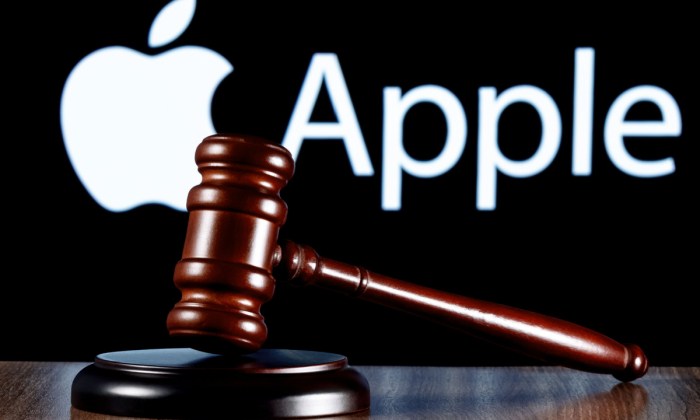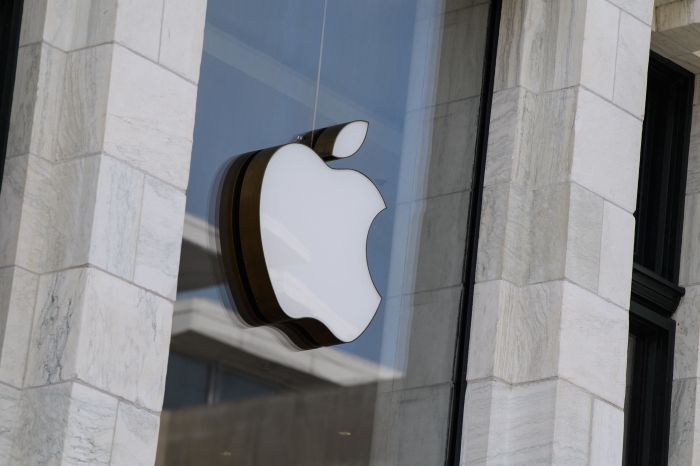Apple Sued by DOJ Over iPhone Monopoly Claims: The tech giant is facing a serious legal battle, accused of using its dominance in the smartphone market to stifle competition. The Department of Justice (DOJ) has filed an antitrust lawsuit against Apple, alleging that the company has engaged in anti-competitive practices to maintain its grip on the iPhone ecosystem. This lawsuit has sent shockwaves through the tech industry, raising questions about the future of innovation and competition in the smartphone market.
The DOJ’s lawsuit focuses on Apple’s control over the App Store, arguing that the company has used its platform to unfairly advantage its own apps and services while hindering competitors. Apple has denied these allegations, claiming that its practices are necessary to ensure the security and quality of its platform. This legal battle is likely to have significant implications for both Apple and the broader tech industry, potentially impacting the future of app development, consumer choice, and innovation.
Legal and Regulatory Implications
The Department of Justice’s (DOJ) lawsuit against Apple over alleged iPhone monopoly claims carries significant legal and regulatory implications, potentially reshaping the tech industry landscape. This case draws attention to the complex interplay between antitrust laws, innovation, and consumer welfare in the digital age.
Antitrust Laws and Legal Precedents
The DOJ’s lawsuit hinges on the Sherman Antitrust Act of 1890, which prohibits anti-competitive practices like monopolies and price-fixing. The case draws inspiration from landmark antitrust cases like the 1984 case against AT&T, which resulted in the breakup of the telecommunications giant. However, applying antitrust principles to the modern tech sector presents unique challenges, as companies like Apple operate in fast-evolving markets with complex business models. The DOJ argues that Apple’s control over the iOS app store, coupled with its App Store policies, creates an unfair advantage, stifling competition and harming consumers. Apple, in turn, is likely to argue that its app store policies are necessary for security and quality control, and that its dominance in the mobile market is a result of its innovation and consumer preference.
Potential Ramifications for Tech Companies and the Regulatory Landscape
The outcome of this lawsuit could have significant implications for other tech companies and the broader regulatory landscape. If the DOJ prevails, it could set a precedent for increased antitrust scrutiny of other tech giants, such as Google, Amazon, and Meta. This could lead to stricter regulations on app store policies, data collection practices, and other areas where dominant tech companies operate. The case could also encourage other countries to adopt similar antitrust measures, further shaping the global tech industry. For example, the European Union has already taken steps to regulate tech giants through legislation like the Digital Markets Act (DMA).
Potential Legal Challenges for Apple, Apple sued by doj over iphone monopoly claims
Apple is likely to face several legal challenges in defending against the DOJ’s claims. One key argument will be whether Apple’s app store policies are anti-competitive or necessary for maintaining a secure and high-quality platform. Apple will need to demonstrate that its policies are reasonable and proportionate to its stated goals. Another challenge will be demonstrating that its dominance in the mobile market is not a result of anti-competitive practices but rather due to innovation and consumer preference. Apple will also likely argue that the DOJ’s lawsuit is based on an outdated understanding of the tech industry and that its actions are not harmful to consumers.
Public Perception and Media Coverage: Apple Sued By Doj Over Iphone Monopoly Claims
The Department of Justice’s lawsuit against Apple for alleged monopolistic practices concerning the iPhone has sparked a flurry of public discourse and media coverage. This legal battle has ignited debates about the potential impact on Apple’s brand image, consumer perception, and the future of the smartphone industry.
Public Opinion and Media Coverage
The lawsuit has received significant media attention, with news outlets widely reporting on the allegations and potential implications. Public opinion has been divided, with some consumers expressing support for the DOJ’s action, arguing that it could lead to increased competition and lower prices in the smartphone market. Others have defended Apple, highlighting the company’s innovation and contributions to the industry.
Impact on Apple’s Brand Image and Consumer Perception
The lawsuit could potentially damage Apple’s brand image and consumer perception. If the allegations are proven, it could lead to a decline in consumer trust and a negative perception of Apple as a company that engages in anti-competitive practices. However, Apple has a strong brand reputation, and it is possible that the company could weather this storm, particularly if it can effectively communicate its position to the public.
Stakeholder Viewpoints
The lawsuit has also drawn diverse viewpoints from various stakeholders. Consumers are concerned about potential price increases and limited choices if Apple is found guilty of monopolistic practices. Industry experts have expressed mixed opinions, with some arguing that the lawsuit could promote innovation and competition, while others believe it could stifle Apple’s future innovation. Legal analysts have highlighted the complexity of the case and the potential for lengthy legal battles.
The DOJ’s lawsuit against Apple is a major development in the ongoing debate about antitrust regulation in the tech industry. The outcome of this case could have a significant impact on the future of the smartphone market, potentially leading to increased competition, greater consumer choice, and new innovations. The case also raises important questions about the role of technology giants in the digital economy and the balance between innovation and competition.
Apple’s legal woes continue, with the DOJ alleging an iPhone monopoly. It seems like tech giants are facing scrutiny left and right. Remember that time when Waymo’s self-driving cars were investigated for safety concerns after they crashed into traffic cones during construction? waymo safety probe nhtsa crashes traffic cones construction The DOJ’s case against Apple highlights the importance of fair competition, a lesson that tech companies, like Waymo, could benefit from learning.
 Standi Techno News
Standi Techno News

